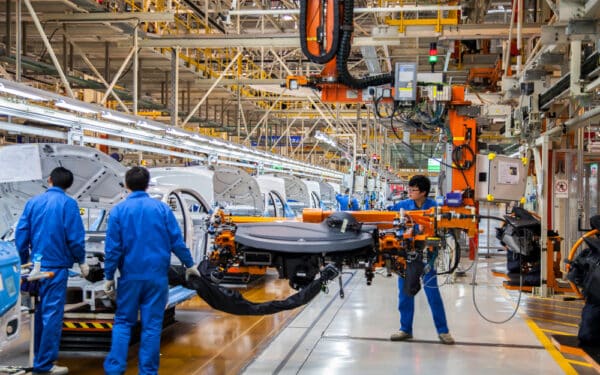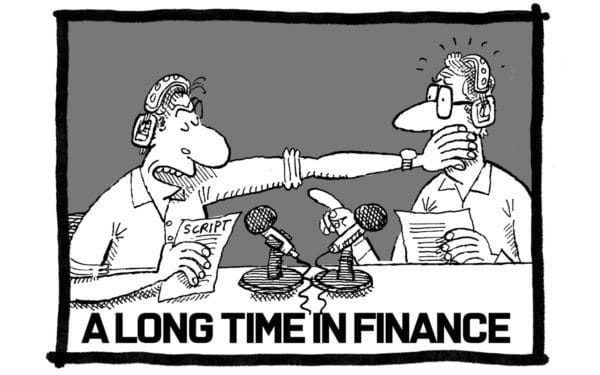Tyler Cowen, an esteemed US economist, has urged Brits to be more optimistic, despite the cost of living crisis and the UK’s economy position firmly at the bottom of the G7 growth league, writes Max Mitchell.
Speaking at Civic Future’s The Great Stagnation Summit in Cambridge, Cowen said that “It is now a mainstream view that productivity has declined in the Western world and Japan. And this is a problem for living standards,” but we should be hopeful as “there’s good news: I now firmly believe that we are getting out of the Great Stagnation.”
Cowen also pointed out that Britain is still a technological and scientific powerhouse given its relatively small size, citing the key role Oxford and Cambridge played in the development of the Covid vaccine.
Cowen is famous for his seminal book, The Great Stagnation: How America Ate All the Low-Hanging Fruit of Modern History, Got Sick, and Will (Eventually) Feel Better released in 2011, where he argued that economic growth has slowed down in America and the West more generally because the factors that once promoted fast growth are no longer present. Since then, he has argued for a number of ways to increase growth and productivity so we can return to the speed of growth experienced in the latter half of the 18th and first half of the 19th century.
During his keynote speech, Cowen said that even though he had been studying the economic malaise for many years, “we’re still trying to figure out why it declined” in the first place. He compared the technological advances in his grandmother’s lifetime with his own, illustrating that progress has slowed: “My grandmother was born in 1905. In the first 50 years of her life, everything changed, to something that looks a fair amount like modern America. You can visit 1955 America now, and you can live. Kitchens today are basically 1955 – with a microwave.”
Cowen, the chair of the Mercatus Centre think tank based at George Mason University in Virginia insisted, however, that despite this sluggishness, there is cause for hope. He argued that we were slowly by surely coming out of a period of economic stagnation: “This is not fully confirmed [and] it’s not a new era of unrivalled plenty. But something fundamental has changed. There are breakthrough areas.” These areas he said were computation in AI and medicine, among others.
Making comparisons between the US and the UK, Cowen highlighted that the US has benefited from an economic system that rewards scale and the governmental system of federalism. The infamously blunt economist held his hands up: “I don’t know what system of governance will work for the UK, but you have to be optimistic and I believe what you come up with will work for you”.
Earlier in the week, Cowen had appeared at the launch of Liz Truss’ international think tank, The Growth Commission, where he appeared on a panel chaired by The Telegraph’s Liam Halligan with co-chairmen Doug McWilliams and Shanker Singham to “investigate the causes of the slowing down in GDP per capita growth worldwide”.
In a week where economic malaise and slowed productivity are at the heart of the political discourse, this timely speech roused optimism within the audience. Prior to the conference, Munira Mirza, former head of No 10 Policy Unit under Boris Johnson and current CEO of the think tank which is hosting the conference, Civic Future, wrote an op-ed in The Times. She wrote: “Today, despite the remarkable technological advances of AI and life sciences, most of Britain is steeped in a sense of stagnation and institutional sclerosis.” But now, it is high time to “once again rise to Harold Wilson’s challenge, thrown down 60 years ago, and power Britain into a new future of transformative growth.”
With the release of figures this week showing that the UK economy shrank by 0.1 per cent, the problem of economic stagnation is not going anywhere. However, according to Cowen, the UK’s strengths in science and technology may yet be a cause of hope for accelerated growth.
Write to us with your comments to be considered for publication at letters@reaction.life




